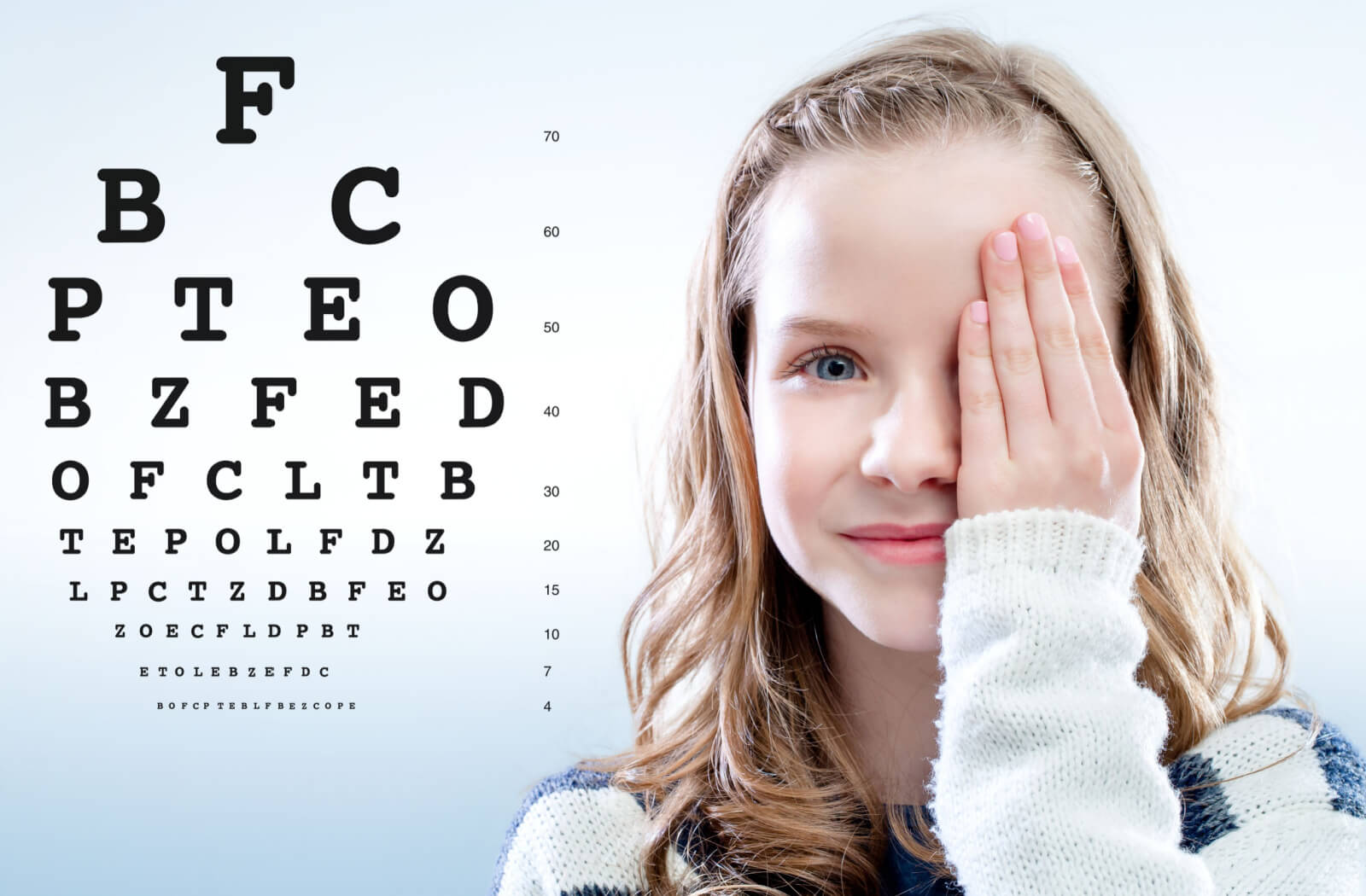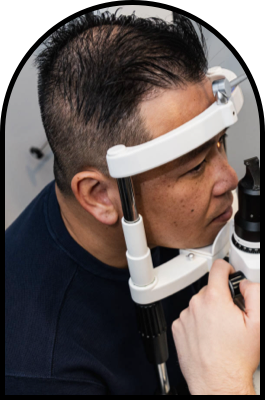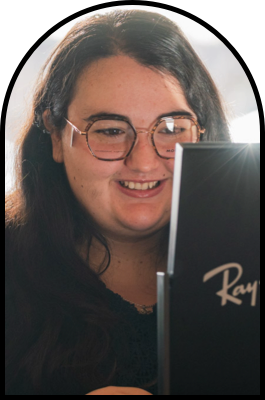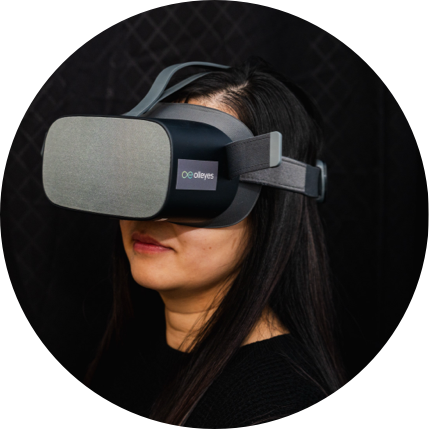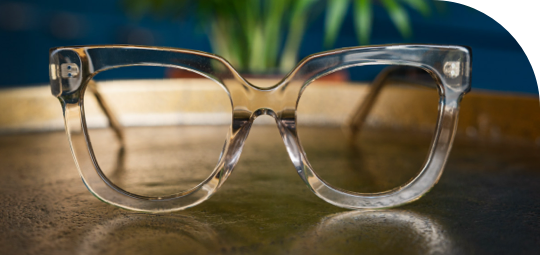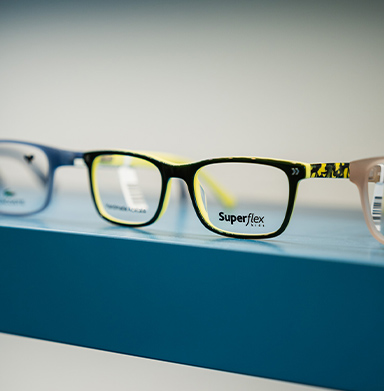Eye Exams Are Health Care
Eye care is an essential part of health care as eye exams assess more than your vision. Optometrists can detect many health conditions, including diabetes, high blood pressure, and brain tumours, during routine eye exams. Children’s eye exams help monitor visual development, giving your child the best chance for lifelong healthy vision.
The cost of an eye exam in Calgary typically starts at around $135, but can change depending on specific length of the exam, location, and coverage.
So, what can you expect when it’s time to schedule your recurring eye care appointment? What types of tests are common, and what does your optometrist look for? Keep reading to learn about Calgary eye exams!
Vision Care Coverage
Before you step into your optometrist’s office, it can help to understand what’s covered by Alberta Health Care or your private insurance provider.
Alberta Health Care covers one annual comprehensive eye exam for children (0–18) and seniors (65+). Additional vision care coverage may be decided case-by-case, as Alberta Health Care will cover medically necessary procedures and treatments.
For example, senior coverage usually extends to diabetes, cataracts, and glaucoma evaluations or treatment.
Alberta Health care does not cover eye exams for adults (ages 19–64), but the provincial vision care coverage will cover medically necessary services. Additionally, many Albertans have insurance coverage through a private medical plan or an employer. Patients should check their coverage for vision care details.
What Is Medically Necessary?
Although Alberta Health Care doesn’t cover routine assessments for adults, Albertans can receive vision coverage for medically necessary services. Children and seniors can also receive additional coverage for anything considered medically necessary.
But what is medically necessary?
Optometrists have the training, tools, and equipment to diagnose and treat specific issues. If you’re unsure if your eye problem is covered, contact your optometrist before your appointment.
Examples of medically necessary eye care include:
- Eye infections or injuries
- Foreign objects in the eye(s)
- Diabetic eye exams
- Monitoring for eye disease (glaucoma, retinal disease)
- Post-operative care for cataract patients
- Sudden vision changes
What Does an Eye Exam Cost in Calgary?
The cost of an eye exam depends on various factors, including:
- How much is covered by Alberta Health Care
- How much is covered by private or employer insurance
- What tests are performed or services are provided
The cost can also depend on whether you need glasses or contact lenses. The optometry office you visit may offer unique pricing or deals combining the cost of eyewear and an eye exam.
A routine comprehensive eye exam in Calgary usually starts at around $135.
Comprehensive Eye Tests

A routine eye exam consists of multiple tests (each about 5–10 minutes), with most appointments completed within one hour. While additional tests can add to the overall cost of your eye exam, each serves a unique diagnostic purpose.
The assessments performed vary depending on the patient’s needs, such as symptoms, patient concerns, and medical history. Some common evaluations included in comprehensive eye exams include:
- Case history review (medical history, family history, past vision issues)
- Colour vision evaluation
- Eye movements & eye teaming (binocular vision, eye coordination, depth perception, & hand-eye coordination)
- Eye health assessment (internal & external eye tissue)
- Glaucoma screening & intraocular eye pressure testing
- Neurological evaluation of the visual system
- Refractive status & prescription assessment
- Visual acuity measurement of both eyes (individually & together)
The instruments and equipment used for testing can also vary. Some instruments you’re likely to see include the following:
- Retinal imaging uses scans to capture images of the back of the eye, including the retina. The magnified, detailed images help optometrists diagnose changes to eye health.
- Optical coherence tomography (OCT) is a noninvasive diagnostic technology used to create detailed, 3D scans of the back of the eye, including the retina, macula, and optic nerve.
- A retinoscopy uses a retinoscope (a handheld instrument) to evaluate refractive errors. The test is sometimes performed instead of reading a letter chart. Alternatively, your optometrist may use a phoropter (a device containing multiple lenses changed until the patient achieves clearer focus).
- The slit lamp exam uses light and a low-powered microscope to assess eye structures.
- Tonometry is used for glaucoma testing. Optometrists may use traditional contact tonometry or non-contact tonometry.
- Visual field testing uses a bowl-shaped device called a perimeter to evaluate each eye. The device flashes a series of lights or targets to test peripheral (side) vision.
Learn More from Your Optometrist in Chestermere
Eye exams are crucial for protecting your health and supporting your vision needs. Updating a glasses or contact lens prescription is only one reason to schedule regular checkups with your optometrist. Eye exams can support lifelong eye care by managing visual comfort or diagnosing eye diseases.
Your optometrist is also an educational resource. When you have questions or concerns about your vision or eye health, your optometrist can answer them. Eye exams help your eye care team get to know you and your visual needs so they can personalize your care.
At Chestermere Optometry, our focus on holistic eye care ensures you receive quality care based on your health and lifestyle. We take the time to get to know your needs to provide comprehensive solutions for you and your family. Book an appointment with our team today!


